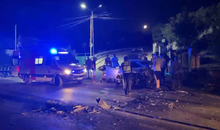
 Flash News
Flash News
Suspected of being murdered, photo emerges of 23-year-old found dead in Shkopet lake
Theth action, resident in tears: I built on my land with my life's expenses, the state should not destroy it
Directors targeted! After Fier and Durrës, Rama arrives in Elbasan
Name/Identification of the 23-year-old found dead near Shkopet Lake
IKM action in Theth, residents come out in protest
Gjata: Why does the Court not act in favor of the 500,000 families that benefited from the legalization process?

The member of the National Council of the DP, Çlirim Gjata, through a statement to the media, raises the question of why the Supreme Court does not act in favor of the 500,000 Albanian families that have benefited from the legalization process.
According to Long, the Supreme Court should examine this conflict, in its United Colleges for unification, where the obligation to implement the decision of the Constitutional Court is sanctioned.
He further adds that the Supreme Court must prevent any action by judges without integrity to review and decide abusively on cases which cannot be raised after it has been decided by the Constitutional Court, otherwise the legal security of hundreds of thousands would be compromised. owners who have benefited from this process.
Full statement:
Why does the Supreme Court not act, in accordance with Decision no. 35/2007 of the Constitutional Court, to instruct the courts of lower levels, in favor of over 500 thousand families that have benefited from the legalization process by unifying the administrative case No. 31003-00082-00-2017 that will be examined in the High Court on February 29, with Judge Relator Asim Vokshin?
Will the Supreme Court try to overturn Decision No. 35 of the Constitutional Court and the legalization law itself, to the detriment of over 500 thousand families who have benefited from this process?
The National Association of the Expropriated "Rightful Ownership" presented in 2007, before the Constitutional Court, a request for the repeal of some articles of law no. 9482, of April 3, 2006 "On the legalization, urbanization and integration of unauthorized constructions".
At that time, the petitioner claimed that the legalization of informal constructions in favor of their owners constituted a violation of the property rights of the owners or former owners.
In this process, the Constitutional Court reached the conclusion that there is a "public interest" that can justify the expropriation of legal owners and the transfer of their properties to the ownership of builders of constructions without permission.
On the basis of this general conclusion, the Constitutional Court, the latter, decided "Dismissal of the request of the association "Ownership by Right".
This then gave way to the progress of the legalization process, which until those moments was in the initial steps.
But what steps did the Supreme Court take to implement this decision of the Constitutional Court. According to Article 132 of the Constitution, the Decisions of the Constitutional Court are final and binding for implementation.
The Supreme Court has not undertaken any decision to unify or unify the judicial practice.
If every lawsuit that opposes the legalization process itself is accepted, then it is not the value that is opposed, but the "public interest" itself.
Not even after the "judicial reform" and after the completion of the entire judiciary, the Supreme Court has not taken any steps to regulate this issue.
The Supreme Court has the obligation to issue a unifying or compensating decision in administrative case No. 31003-00082-00-2017
Will you do this or will you try to overturn Decision No. 35/2007 of the Constitutional Court with a Court Decision?
First, there are over 500 thousand families that have benefited from the legalization process and have received the ownership certificate. Meanwhile, the former owners of the land on which the informal constructions were legalized, were expropriated by the Decision of the Council of Ministers of 2008. In this way, they are not legitimized in filing a lawsuit to request the annulment of the Legalization Permit, but have they have the right to go to court only to contest the expropriation value approved according to the Government Decision.
In the specific case for the administrative case No. 31003-00082-00-2017 which will be examined in the High Court after a few days, it turns out that contrary to the Decision of the Constitutional Court, Judge A. Sejdi with Decision No. 4508 dated July 29, 2014 of the First Instance Administrative Court has decided:
- "Determining the partial absolute invalidity of the administrative act Legalization Permit and regulation of the consequences"
In the given decision, Judge Avni Sejdi came out on the applicable law and the principles sanctioned and approved by the legislator.
In this case, Judge Avni Sejdi tried to overturn the legalization law itself with a court decision.
1. The above decision was found to be unfounded in facts, evidence and law, by the Tirana Administrative Court of Appeal, which by Decision no. 3253 dt. 13.10.2016, has decided: "Amendment of Decision no. 4508 dt. 29.07.2014 of the Administrative Court of First Instance of Tirana and dismissal of the lawsuit as unsupported by evidence and law.
This issue was raised before the Independent Qualification Commission, during the vetting procedures of this judge. KPK with Decision No. 733, January 19, 2024, decided "Dismissal of Judge Mr. Avni Sejdi".
In the content of this Decision, KPK, in the criterion of pro-professional skills, has addressed, among other things, the judicial practice of Decision No. 4508 of July 29, 2014 to Judge Sejdi, which pertains to the administrative case reviewed in the Supreme Court, on February 29.
- The Independent Qualification Commission, in the analysis of Decision No. 4508 dated 29.07.2014, by judge Avni Sejdi, concluded that:
" 176.12 In conclusion, the Commission assesses that the subject has demonstrated deficiencies in terms of legal knowledge, in the sense of Article 72, point 2 of Law no. 96/2016, and in terms of legal reasoning, in terms of Article 72/3 of Law no. 96/2016 regarding the quality of the analysis and argumentation of the decision, as well as violated the right of ownership of the defendant parties, deciding the deregistration of the property in their name, without analyzing the validity of the acts through which this property was obtained.
Will abusive and corrupt actions, like those of Judge Sejdi, be allowed to deliberately destroy the process of legalization certified by Decision No. 35/2007 of the Constitutional Court?
The Supreme Court should pass this case for review, to the United Colleges of the Supreme Court, and come out with a unifying decision for this very important and vital process for hundreds of thousands of families who have benefited from the legalization process.
The Late Court must undertake a unifying decision, to prevent any action by judges without integrity, to examine in an abusive manner issues that cannot be raised by entities that are not legitimized, while they have been expropriated for public interest, by government decision. Because they cannot request the invalidity of the legalization process and violate the legal security of hundreds of thousands of owners who have benefited from this process, but they can complain in court, only for the value of the compensation, if this value determined by the state, is not it is a fair measure of reward according to them.
Latest news

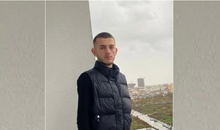


Found dead in Shkopet Lake, 23-year-old has injuries to his throat
2025-07-09 10:41:39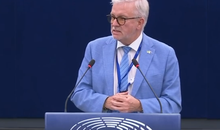
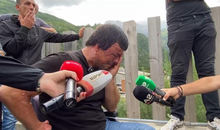

Hoxha: We will have a parliament that will surpass any comedy program!
2025-07-09 10:10:32

Directors targeted! After Fier and Durrës, Rama arrives in Elbasan
2025-07-09 09:53:57
Name/Identification of the 23-year-old found dead near Shkopet Lake
2025-07-09 09:42:34
IKM action in Theth, residents come out in protest
2025-07-09 09:34:54
Reasons why the EU has not imposed new sanctions against Russia
2025-07-09 09:18:35
DW: Online scams increase human trafficking
2025-07-09 09:01:29

Reported missing by his father, 23-year-old found dead near Shkopet lake
2025-07-09 08:42:13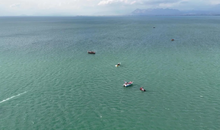

Horoscope, what do the stars have in store for you today?
2025-07-09 08:25:44
Sun and rain, Wednesday with unstable weather
2025-07-09 08:06:58
Posta e mëngjesit/ Me 2 rreshta: Çfarë pati rëndësi dje në Shqipëri
2025-07-09 07:52:02

Tabaku: Salianji bore a political cost that no one in Albania has borne
2025-07-08 22:36:15


Sekretet për të shijuar verën si një ‘profesionist’
2025-07-08 21:45:06

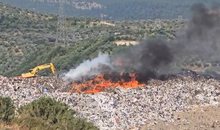
Albania's Waste Crisis: Toxic Smoke and Deep Governance Problems
2025-07-08 21:13:07
Alarming pollution in Fushë-Arrëz, copper factory waste turns the Fan River red
2025-07-08 21:07:14

Poll/ How do you assess the Prime Minister's intervention in local government?
2025-07-08 20:40:01
28 arrested in Italy and Spain for drug trafficking, including an Albanian
2025-07-08 20:24:14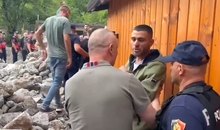
Residents clash with police in Theth: We are on our land
2025-07-08 20:11:41
Death of 27-year-old in Lipjan, Osmani: To be investigated independently!
2025-07-08 20:06:52
Trump promises US will send more weapons to Ukraine
2025-07-08 19:54:25

EU targets health, education, police and cadastre as areas of corruption
2025-07-08 19:23:34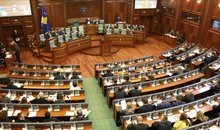
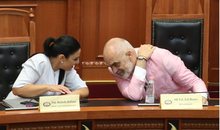
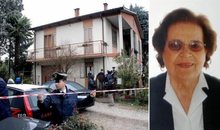
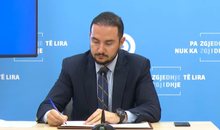

Salianji after his return: I did not oppose for functions, but for vocation
2025-07-08 18:23:15
Will he run in the 2029 elections? Here's how Salianji answers
2025-07-08 18:16:09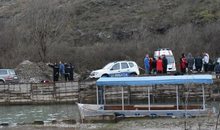
Boat captain drowns after diving into water to save two tourists in Shkodra
2025-07-08 18:05:12
Salianji from the DP headquarters: I brought a drug trafficker to justice
2025-07-08 18:03:26
After Fier, Rama "landes" in Durrës, dismissals expected
2025-07-08 17:53:32
Ervin Salianji arrives at the blue headquarters, welcomed by supporters
2025-07-08 17:45:12
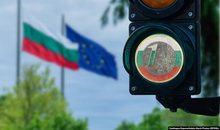
EU approves final steps for Bulgaria's Eurozone membership
2025-07-08 17:43:06

Zhupa after Salianj's release: Inspiration for every opposition member
2025-07-08 17:19:39
Actor David Killick passes away
2025-07-08 17:09:23


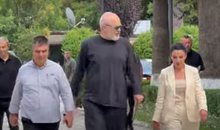
Threatened with dismissals, Rama arrives at the Fier municipality
2025-07-08 16:39:19
Extreme temperatures temporarily close Acropolis in Greece
2025-07-08 16:30:34

A plot of cannabis is discovered in Mazha, Kruja
2025-07-08 16:13:48

Republika Srpska allocates additional 22 million euros for lobbying in the US
2025-07-08 15:52:04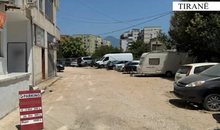

Spices that protect you from mosquitoes!
2025-07-08 15:30:03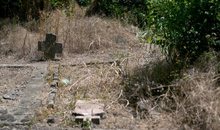

Accident on the Vlora-Qeparo axis, one injured
2025-07-08 15:11:52
Berat, 17 years part of UNESCO's world heritage
2025-07-08 15:03:30
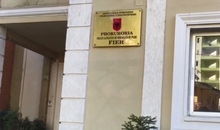

Cost of living increases, inflation rises to 2.4% in June, driven by food
2025-07-08 14:29:54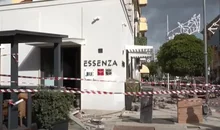
VIDEO/ Restaurant roof collapses in Italy, one victim and ten injured
2025-07-08 14:18:44
Requested release from cell, Supreme Court leaves Veliaj in prison
2025-07-08 14:07:41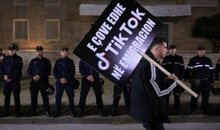
TikTok shutdown/ Austrian media: Rama benefited politically from the app ban
2025-07-08 13:48:25
Acropolis temporarily closed due to heat
2025-07-08 13:31:09



Salianj's release/Berisha: He was politically condemned by Rama and Xhafa!
2025-07-08 13:00:13

Knife attack on Peshkopia Boulevard
2025-07-08 12:44:10


Fier Court decides on the conditional release of Ervin Salianj
2025-07-08 12:15:23
Cost of living increases, inflation rises to 2.4% in June due to food
2025-07-08 12:00:16
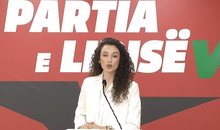

Requesting conditional release, Ervin Salianji arrives at the Fier Court
2025-07-08 11:16:36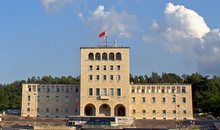
The first phase of university applications begins today
2025-07-08 11:10:52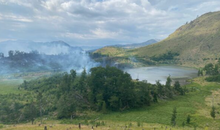
Fire in Lura, flames endanger the National Park
2025-07-08 10:53:43
Trump warns of 35% tariffs on Serbia and 30% on Bosnia and Herzegovina
2025-07-08 10:37:32
Thethi rooster and the dung cock
2025-07-08 10:24:01
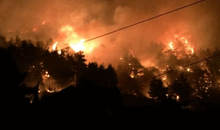
Fire in Dukat endangers Llogara National Park
2025-07-08 10:01:39
International drug search: 36-year-old arrested in Durrës (NAME)
2025-07-08 09:50:48
Thethi, tourists "criticize" modern trend
2025-07-08 09:39:54
Fire on Mount Dukat still active, Llogara National Park at risk
2025-07-08 09:28:12
Veliaj's appeal to be heard today in the High Court
2025-07-08 09:16:02
"Bad sign for democracy"/ Parliament neglects reporting by institutions
2025-07-08 09:04:56
Today's hearing at the Fier Court, Salianji requests conditional release
2025-07-08 08:56:39
